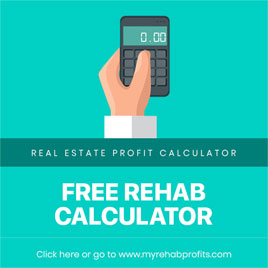
How to find out how much a house was purchased for
If you are looking to purchase a property to live in, renovate, or flip, you have likely done some research on the area. You probably know about the school district, nearby stores and attractions, and the overall crime rate for your potential neighborhood. But do you know how much other homes in the area have sold for?
While the information may not seem relevant to your home buying experience on the surface, it is very important to know. For home buyers, knowing the selling price of similar properties can help you formulate an offer. For house flippers, this information can help you determine your potential after repairs value (ARV). Either way, it is a good idea to research purchase prices of nearby homes.
Why should you care about the purchase price of another home?
You know your budget and you know the type of property you want. Why does the selling price of other homes matter? After all, those houses are already sold and taken off the market. If discovering this information seems like a waste of your time, keep reading.
Avoid overpaying
One of the biggest benefits of doing your research is that you can avoid overpaying for the property you want. Just because a property is within your budget does not mean you have to pay the full asking price. When you learn about the selling price of other properties in the area, you can get a better sense of a fair price for your house.
If the sellers are asking for more than you can afford, this information can help you defend a lower offer. When the price of your property is relatively similar to homes in the surrounding area, you can feel confident that you are not overpaying.
Estimate the ARV
The after repairs value (ARV) of a property is crucial information for house flippers. This can help you judge how much you should pay for a property based on your potential profits. A key step in determining the ARV of a property is to look at comparables, also known as comps.
Comps include properties that have recently sold or are currently up for sale in the same area as your potential property. They are also similar in style and size, age, and other characteristics. Using comps can provide an idea of the going rate for homes in a specific area and offer an estimate of how much you can sell your house for.
Who can benefit from knowing how much a house sold for?
All homebuyers can benefit from knowing how much houses in their area sold for. This information offers an idea of the average price of homes in your area to gauge your offer or ARV. But buyers are not the only ones who can benefit from this information.
If you are selling a home or considering putting your house up for sale, it is important to know the going rate of nearby houses. You can price your property competitively to attract attention from buyers. You can also look at trends in home prices to determine if there is a better time of the year to sell.
How to find how much a house sold for
Learning how much a house sold for is surprisingly easy. The information is relatively accessible, though it may require you to do a little research. There are many free public resources and online databases that provide considerable pricing information for real estate in your area.
Are home sale prices public record?
Yes, the sale prices of homes are public record. This means that anyone can access the information for free. Your county tax assessor’s office keeps records of this information and can provide it to you upon request. You may have to call or visit their office to get the data.
You will need to provide the property address in order to determine the sale price. There may also be a window of time between when a property sells and when the information is available in public record. Each county is different, so you may need to check in regularly for more info.
Search online
You can conduct your own online research to learn more about nearby properties that have sold or are up for sale. This is an easy way to compare neighborhoods or properties that you are interested in. Many sites offer databases of homes, market conditions, sell prices, and more. For example, you can filter your search on Zillow by homes recently sold. The purchase price may not be available for every property, but it will show up for some.
Your county may also provide property tax information online. Try searching their website to see if the data is accessible without visiting the office or making a phone call. This option may work best for people in large counties with significant digital resources.
Ask your real estate agent
Your realtor has access to the MLS, which provides considerable information on properties. They can easily find how much a specific property sold for. They can also provide comprehensive information on houses currently for sale in the area.
Conclusion
Conducting research on nearby properties is an important step for both buyers and sellers. Knowing the purchase price of a property can help you optimize your own property’s price or determine a fair offer for a potential home or flipping project. House flippers also need to know this data to estimate the ARV of a property and maximize their potential profits.
If you are looking for an opportunity in house flipping, Wealth 212? is your answer. They offer a unique partnership by providing funding, financial security, and resources for house flippers. You just need to know your area and be able to locate potential properties. Following the steps listed above to learn the selling price of houses can help you gain the local knowledge you need to successfully flip homes with Wealth 212? by your side.




